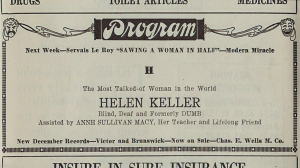From the Chicago Reader (January 22, 1999). For my earlier take on this film, written when it was released in London, go here. — J.R.

The Mother and the Whore
Rating **** Masterpiece
Directed and written by Jean Eustache
With Jean-Pierre Leaud, Francoise Lebrun, Bernadette Lafont, Isabelle Weingarten, Jacques Renard, Jean Douchet, and Jean-Noel Picq.

I have a friend who had a wonderful idea: he wanted to have his right hand amputated. Very seriously. Went to see a surgeon, said, ‘How much does it cost, I’m ready to pay.’ He wanted to have a porcelain hand made to replace it. And in his home, in a room, in the very center of the room, to place his real hand in formaldehyde, with a plaque reading, ‘My hand, 1940-1972’. And people would come to visit, like they’d go to an exhibit.
— Alexandre in The Mother and the Whore
Is it permissible to disapprove of a masterpiece? I find Jean Eustache’s obsessive, 215-minute black-and- white The Mother and the Whore, playing nine times this week at Facets Multimedia Center, every bit as mesmerizing today as I did when I attended the premiere at Cannes in 1973. I must have seen it four or five times since, the last time in the early 80s. Read more
My column for Caimán Cuadernos de Cine, submitted in late April for their June 2020 issue. Happily, both Her Socialist Smile and A House is Not a Home: Wright or Wrong are both readily available now via streaming.– J.R.


I suppose one could say that the coronavirus has been “good” for my web site because more people visit it now. In much the same fashion, and with an equivalent amount of innocent perversity, Donald Trump is said to be “bad” for the United States (that is, most of the people in the United States) yet “good” for television —meaning the handful of billionaires who own and control television, all of whom are felt to be distinct from the United States.


What does it mean, really, to call anything in the media (television, radio, cinema, the Internet, my web site, your web site ) “good” without matching the interests of the people who go there or live there? Like the American delusion that only three kinds of people exist in the world — Americans, anti-Americans, and prospective Americans — this means excluding most of humanity from the playing field.


I once heard that when Jonas Mekas in 1970 received the news that Nasser had just died, his first thought was to ponder whether this was “good or bad for cinema”. Read more

Fourteen years ago, the underrated (or at least undervalued) Michael Kinsley reported in The New Yorker (“The Intellectual Free Lunch,” February 6, 1995, reprinted in his collection Big Babies) on a reputable survey that found that “75 percent of Americans believe that the United States spends ‘too much’ on foreign aid, and 64 percent want foreign-aid spending cut.” (“Apparently,” Kinsley added as an aside, “a cavalier 11 percent of Americans think it’s fine to spend ‘too much’ on foreign aid.”)
The same people were asked how much of the federal budget went to foreign aid, and “The median answer was 15 percent; the average answer was 18 percent.” But “the correct answer is less than 1 percent: the United States government spends about $14 billion a year on foreign aid (including military assistance) out of a total budget of $1.5 trillion.” When asked about how much foreign-aid spending would be “appropriate,” the median answer was 5 percent of the budget; and the median answer to how much would be “too little” was 3 percent, i.e. over three times the actual amount spent.
Kinsley then adds, “This poll is less interesting for what is shows about foreign aid than for what it shows about American democracy. Read more









